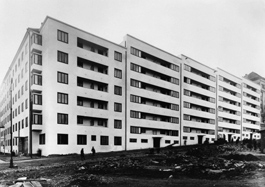
A third of Czechs have no idea how cooperative housing works
 |
| Jindřich Kumpošt: Rental housing of the construction and housing cooperative Úspora in Brno (1931) |
This was confirmed by the survey results among people who plan to acquire their own property in the coming years. More than half of the respondents with sufficient knowledge about cooperative construction saw it as a more accessible housing option for those who cannot qualify for a mortgage. A third of respondents labeled cooperative construction as cheaper, and more than 28% perceived it as more trustworthy compared to new developments by developers.
Interested parties become members of the cooperative by paying a basic membership fee, which ranges from 25 to 35 percent of the total price of the apartment. In some locations, you can buy a three-room apartment for several hundred thousand, with the remaining portion of the apartment's price repaid by the members to the cooperative over the following 20 to 25 years in the form of rent. The rent in new cooperative apartments is comparable and even slightly cheaper than the market rent for apartments in the area.
According to him, another advantage of cooperative housing is its flexibility. The transfer of membership shares in the cooperative is very quick and does not require running around government offices. Additionally, the transfer of membership rights and obligations is not subject to property acquisition tax.
Cooperative housing has a long-standing tradition in the Czech Republic, with the first mentions dating back to the 19th century. A significant boom in cooperatives occurred during the First Republic and later in the 1950s. In the 1980s and 1990s, cooperative apartments accounted for up to 40 percent of newly built panel houses. Then there was a brief decline, which was revitalized by the privatization of the municipal housing stock and the transfer of these apartments into personal ownership. Currently, there are several hundred housing cooperatives operating in the Czech Republic, and in recent years some developers have also started building cooperative apartments again.
The English translation is powered by AI tool. Switch to Czech to view the original text source.
0 comments
add comment









